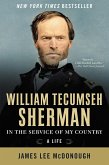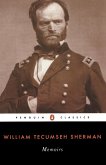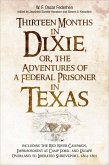The first full-length biography of a saloon-brawling braggart and frontier opportunist turned justice of the peace
Henry Theodore Titus (1822-1881) was the quintessential adventurer, soldier of fortune, and small-time entrepreneur, a man for whom any frontier-geographical, cultural, social-was an opportunity for advancement. Although born in Trenton, New Jersey, and raised in New York and Pennsylvania, Titus bore no allegiance to his native soil or the Yankee values of his ancestors. In the 1850s he became a staunch defender of southern slavery, United States expansionism into the Caribbean Basin, and ultimately the Confederacy's war of disunion. In Colonel Henry Theodore Titus, the first full-length biography of Titus, Antonio Rafael de la Cova reveals a man whose life and adventures offer glimpses into nineteenth-century America not often examined; these indicate the extent to which personal and collective violence, racial prejudice, and moral ambiguities shaped the country at the time.
Belligerent, intemperate, egomaniacal, and of imposing stature, Titus was the bête noire of the abolitionist press. Despite his northern roots, he became a caricature of the southern braggart and frontier opportunist. National newspapers followed his reckless exploits during most of his adult life. Titus fought brawls in the saloons of luxury hotels and narrowly escaped the hangman's noose as a Border Ruffian leader in Bleeding Kansas, a Nicaraguan firing squad as a filibuster, and death in a Comanche ambush in Texas. He nearly prompted an international incident between the United States and Great Britain when he was arrested in Nicaragua for threatening to shoot a British naval officer and disparaging the queen of England. The colonel was jailed in New York City for disorderly conduct and trying "to organize the desperate classes for a riot."
During his lifetime Titus held more than a dozen occupations, including sawmill owner, postal inspector, soldier of fortune, grocer, planing mill salesman, farmer, slave overseer, turtler, bartender, land speculator, and hotel keeper. He pursued silver mining in the Gadsden Purchase portion of the Arizona Territory where his brother was killed and their hacienda destroyed by Apaches. Despite his violent character and his pro-Confederate values, Titus was politically savvy. He did not take up arms during the Civil War. After a brief stint as assistant quartermaster in the Florida militia, he returned to civilian life and sold foodstuffs and slave labor to the Confederacy. Florida Reconstruction governors later appointed him as notary public and justice of the peace.
Rheumatism and gout kept Titus bound to a wheelchair during the last few years of his life when he became an avid civic leader. His greatest legacy was ironically his most benign. Borrowing today's equivalent income value sum of half a million dollars, he established a grocery store and a sawmill in a hardscrabble Florida frontier settlement that became the city of Titusville, the county seat of Brevard County and tourist gateway to Cape Canaveral and the Kennedy Space Center.
Henry Theodore Titus (1822-1881) was the quintessential adventurer, soldier of fortune, and small-time entrepreneur, a man for whom any frontier-geographical, cultural, social-was an opportunity for advancement. Although born in Trenton, New Jersey, and raised in New York and Pennsylvania, Titus bore no allegiance to his native soil or the Yankee values of his ancestors. In the 1850s he became a staunch defender of southern slavery, United States expansionism into the Caribbean Basin, and ultimately the Confederacy's war of disunion. In Colonel Henry Theodore Titus, the first full-length biography of Titus, Antonio Rafael de la Cova reveals a man whose life and adventures offer glimpses into nineteenth-century America not often examined; these indicate the extent to which personal and collective violence, racial prejudice, and moral ambiguities shaped the country at the time.
Belligerent, intemperate, egomaniacal, and of imposing stature, Titus was the bête noire of the abolitionist press. Despite his northern roots, he became a caricature of the southern braggart and frontier opportunist. National newspapers followed his reckless exploits during most of his adult life. Titus fought brawls in the saloons of luxury hotels and narrowly escaped the hangman's noose as a Border Ruffian leader in Bleeding Kansas, a Nicaraguan firing squad as a filibuster, and death in a Comanche ambush in Texas. He nearly prompted an international incident between the United States and Great Britain when he was arrested in Nicaragua for threatening to shoot a British naval officer and disparaging the queen of England. The colonel was jailed in New York City for disorderly conduct and trying "to organize the desperate classes for a riot."
During his lifetime Titus held more than a dozen occupations, including sawmill owner, postal inspector, soldier of fortune, grocer, planing mill salesman, farmer, slave overseer, turtler, bartender, land speculator, and hotel keeper. He pursued silver mining in the Gadsden Purchase portion of the Arizona Territory where his brother was killed and their hacienda destroyed by Apaches. Despite his violent character and his pro-Confederate values, Titus was politically savvy. He did not take up arms during the Civil War. After a brief stint as assistant quartermaster in the Florida militia, he returned to civilian life and sold foodstuffs and slave labor to the Confederacy. Florida Reconstruction governors later appointed him as notary public and justice of the peace.
Rheumatism and gout kept Titus bound to a wheelchair during the last few years of his life when he became an avid civic leader. His greatest legacy was ironically his most benign. Borrowing today's equivalent income value sum of half a million dollars, he established a grocery store and a sawmill in a hardscrabble Florida frontier settlement that became the city of Titusville, the county seat of Brevard County and tourist gateway to Cape Canaveral and the Kennedy Space Center.
Dieser Download kann aus rechtlichen Gründen nur mit Rechnungsadresse in A, D ausgeliefert werden.









